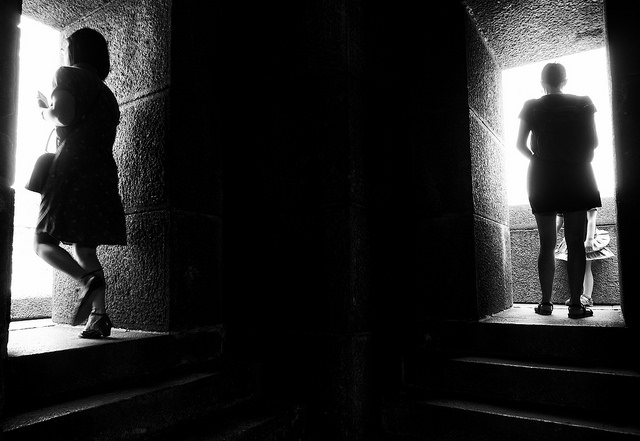Torah Sparks
Exodus 13:17 – 17:16
The opening of our Torah portion is full of drama, humor and pathos. As the Israelites triumphantly leave Egypt, pushed out by Pharaoh, we are taken behind the scenes, as it were, by our storyteller. We discover that many things are happening all at once, with multiple perspectives entertained by the various players of the event, each seeing only part of the picture. It is only thanks to our narrator that we, the story’s listeners and readers, succeed in getting the full picture. The picture that emerges is one of power upended, of control subverted, and of predetermined destiny made into something entirely contingent and unpredictable.
Thus, the very first verse tells us that Pharaoh “sent out the nation” (the verb used conveys forcefulness and decisiveness) but that it was God Almighty Who determined their course. But God’s great power is subtly undermined when we further learn that God has deliberated over what route to take and has made a choice based on God’s worries about the courage and steadfastness of the Israelites. God suspected that they would lose heart and return to Egypt if the going got too rough. Thus, God’s miraculous liberation of the Israelites was subject to the whims of the Israelites themselves. The next verse tells us that, even as God is steering Israel away from any temptation to lose courage, the Israelites themselves are marching “armed,” as if they had transformed themselves overnight from a beleaguered pack of slaves into a fearsome army. Little do they know, as they march forward with such assurance, how little confidence God has in their exhibition of valor! We can almost imagine God wondering whether this is all really going to work.
The next verse moves us from that bemused report of the wobbly relationship between God and an entire people to a much more intimate drama: “And Moses took Joseph’s bones with him, for he [Joseph] had repeatedly made the children of Israel swear, saying, ‘The Almighty will surely take heed of you; so you must take up my bones from here along with you.” (Ex. 13:19) In contrast to God’s worry about whether the Israelites were up to the task of marching toward freedom and the Promised Land, we are reminded of Joseph’s faith that this redemption would ultimately take place. Yet uncertainty again falls on the Israelites. Would they, in their excitement, remember to take Joseph with them? Poignantly, we are told that one Israelite did remember. It was not one of Joseph’s descendants, neither from the tribe of Menashe nor from Efraim. It fell on Moses himself to take care of Joseph. Just as we saw, early in Moses’ life, he turned here and there and so that there was no one else to step up to do what was right. (Ex. 2:12)
What would have happened had Moses not remembered Joseph’s bones? Would the Exodus have proceeded apace? Or would the Israelites have had to turn and go back to Egypt? The fate of an entire people could not be decided by God Almighty alone. Someone had to recall the oath sworn ages ago to keep the faith with a brother on his deathbed. In all the scurrying and posturing, amid the chaos of events and emotions, that oath was almost forgotten. But Moses remembered. Of all the great acts and accomplishments of Moses Our Teacher and Leader, this one was the most private and, in some ways, the most crucial.
Shabbat Shalom
Rabbi David Greenstein
![]()
Subscribe to Rabbi Greenstein’s weekly d’var Torah
image: “Different Directions” © Georgie Pauwels altered and used with permission via Creative Commons License
- Toby Stein: In Memoriam - Thu, Feb 8, 2024
- Faithfulness and Hope: Parashat Sh’lach - Thu, Jun 23, 2022
- Past Their Prime: Parashat B’ha`a lot’kha - Thu, Jun 16, 2022

